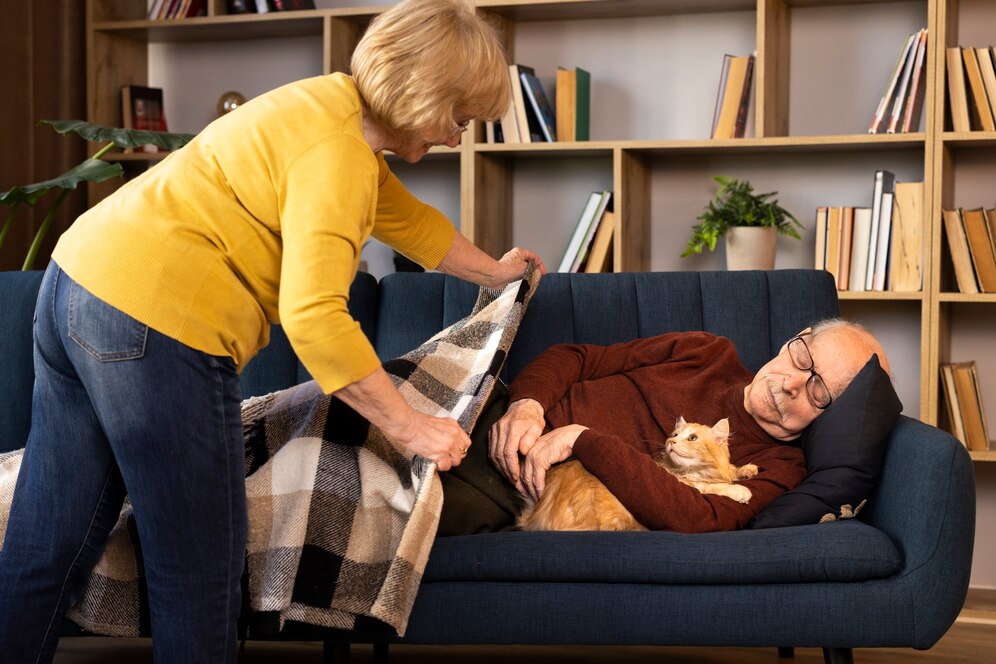Moving an elderly loved one into your home can be a compassionate and practical decision, requiring careful planning and adjustments to create a safe and welcoming environment. From assessing the house for safety to understanding the legal intricacies, there’s much to consider in this transition. In this article, we’ll explore the essential steps and resources that can help you prepare for this new chapter in your and your loved one’s lives.
Assessing Your Home for Senior Safety and Accessibility

Making your home safe and accessible is key when moving in an elderly family member. Start by removing hazards like loose carpets, poor lighting, or difficult steps. Install ramps or handrails if needed, and ensure there’s enough space for walkers or wheelchairs. The bathroom is a high-risk area, so adding grab bars, a walk-in tub, or a shower seat can help prevent falls. Adjust bed and toilet heights for easier use.
Common areas should have clear pathways, secure rugs, and supportive seating. Consider moving a bedroom to the ground floor or installing a stairlift if stairs are an issue. Kitchen safety matters too—keep appliances within reach and use lever-style handles for easy access. To make daily life easier, explore meal delivery services for convenience. Also, ensure the home’s heating and electrical systems are in top shape with Cape Fear Air Conditioning, Heating, & Electrical in Raleigh, NC.
Understanding Legal and Financial Considerations
Moving an elderly relative into your home requires legal and financial preparation. Consult an attorney to discuss power of attorney, healthcare directives, and estate planning. This ensures peace of mind for both parties. Financial considerations include transparent conversations about expenses, determining if the loved one will contribute, and budgeting for additional expenses like home modifications, increased utility bills, and healthcare costs.
Research potential tax deductions and credits for those providing care to a family member. Incorporating the elderly relative into your household can affect both your finances and the household dynamic, so discuss expectations and boundaries to ensure a harmonious living situation.
Essential Medical and Mobility Aids for Elderly Care
Providing adequate care for an elderly relative often involves acquiring the right medical and mobility aids, ranging from simple items like a bedside commode to sophisticated devices like home monitoring systems for chronic conditions. Occupational therapists can provide valuable assessments and recommendations on the appropriate aids.
Medication management is crucial, with aids like pill organizers, reminders, and automatic dispensers preventing missed doses or accidental overdoses. User-friendly aids are also important. Medical equipment, such as blood pressure monitors, blood glucose meters, and portable oxygen tanks, should be kept in easily accessible locations and regularly maintained for reliability.
Resources for Home Modification and Renovation Assistance

Modifying a home for elderly adults can be costly, but there are resources available to alleviate the financial burden. Local government programs offer grants or loans for senior safety and accessibility modifications. Veterans may also benefit from additional programs through the Department of Veterans Affairs.
Community organizations and non-profits provide volunteers, expertise, and financial assistance for small renovations or safety features. Partnering with experienced service providers can ensure that your home’s heating, electrical, and air systems accommodate the specific needs of seniors, enhancing the safety and comfort of your home.
Finding Professional Support Services for In-Home Elderly Care
Home healthcare agencies offer skilled nursing, therapy, and personal care assistants to help manage the daily needs of elderly care. Day programs provide social engagement and respite for caregivers, maintaining mental health and overall well-being.
Meal preparation can be challenging, especially with specific dietary needs, so meal delivery services can help provide well-balanced meals without stress. Emotional and psychological support is crucial for both caregivers and their elderly relative, with local support groups and counselors offering coping strategies and a network of peers who understand their struggles.
Altogether, caring for an elderly loved one at home requires careful planning and a network of support, both of which are essential for a successful transition. By harnessing the right resources and preparing your home environment, you can provide a comfortable and safe space for your family member while ensuring their health and happiness.











